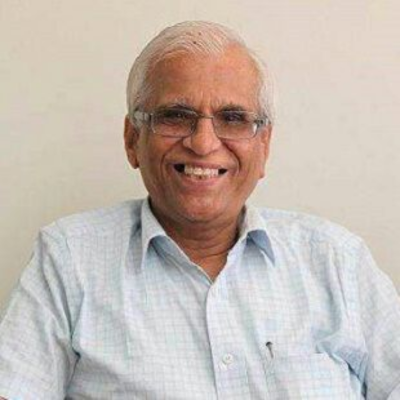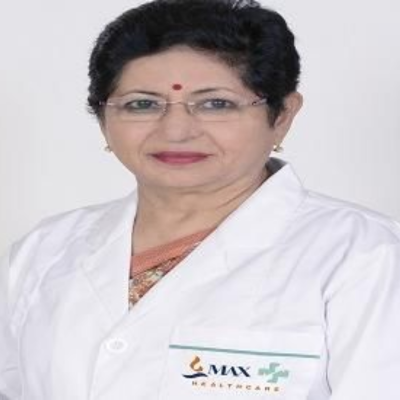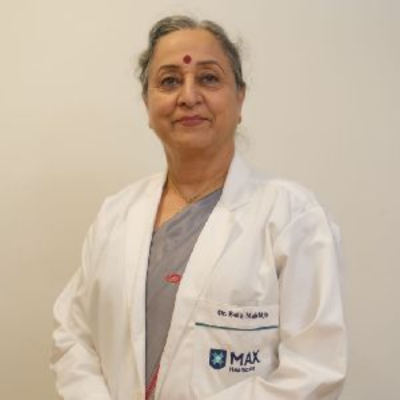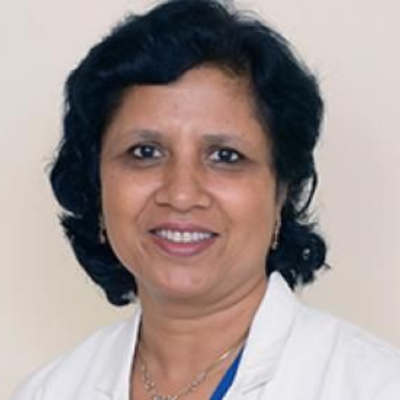The Role of Government Initiatives in Promoting Medical Tourism in India
 02 April,2025
Read More
02 April,2025
Read More
Enquire now in case of any assistance needed
 10 October,2024
10 October,2024
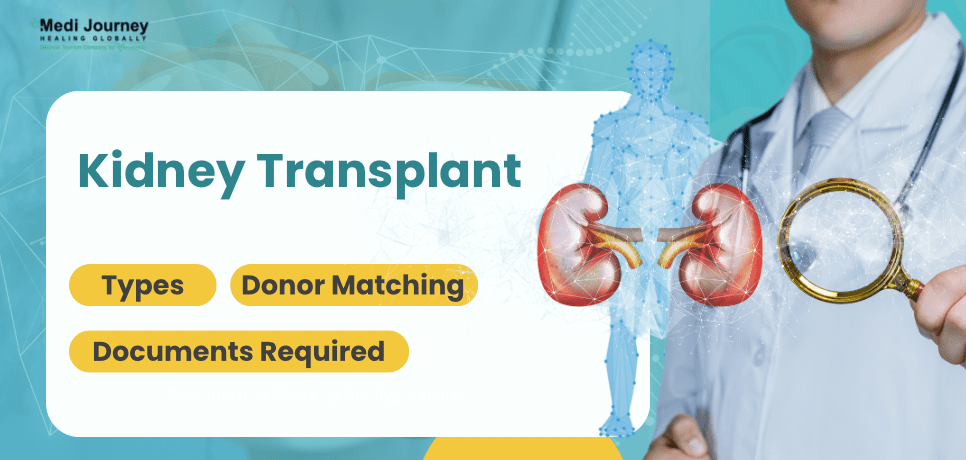
The kidneys are two bean-shaped, fist-sized organs located in the retroperitoneal site on either side of the spine. They are vital organs, and humans cannot survive without at least one healthy, functioning kidney. Kidneys perform several important functions in the body. Their primary function is to eliminate waste through urine by filtering toxins and waste products from the blood. They also regulate body fluids and blood pressure and maintain electrolyte and acid-base balance. When the kidneys fail, all these functions are affected, accumulating harmful toxic substances in the body. The treatment for kidney failure is either dialysis or a kidney transplant.
Kidneys are the most transplanted organs in the human body. In 2022, around 65% of the total organ transplants in the world were kidney transplants. Surgeons Joseph Murray, J. Hartwell Harrison, and their team conducted the first successful kidney transplant on a pair of identical twins. In the last decade, the rate of kidney transplants worldwide has grown from 11 per million population to 17.1 per million population. The United States of America, Spain, and Mexico have the highest rates of kidney transplants. Other popular countries for kidney transplant surgeries include India and South Korea.
This blog explores the kidney transplant procedure, the conditions it treats, and other in-depth information.
A kidney transplant surgery is a procedure where a healthy, functioning kidney obtained from a donor is placed in a patient whose kidneys are not functioning adequately. It is also known as a renal transplant. When both kidneys of the patient fail, a kidney transplant or dialysis are the only treatment options. Usually, a person will need just one healthy kidney from a donor to survive. In rare cases, two kidneys might be transplanted in the same patient.
When a person's kidneys cannot filter the blood to eliminate toxins and waste, an artificial machine does the filtration for them. This process is known as kidney dialysis or renal replacement therapy. Patients have to undergo dialysis for the rest of their lives. It is also expensive and tiring as patients have to visit a dialysis facility or purchase costly equipment to use at home.
A kidney transplant uses a donor kidney to replace the malfunctioning kidneys and perform their functions. It is a comparatively long-term solution for kidney failure. It also offers benefits such as a better quality of life, higher life expectancy, fewer dietary restrictions, lower risk of complications, and a lower cost of treatment.
While both procedures are accepted methods of treating kidney failure, kidney transplants are often the treatment of choice. However, not all patients with kidney failure are eligible for a transplant.
The doctor decides the type of kidney transplant based on the patient's health, the cause of kidney failure, and organ availability. There are three main types of kidney transplants:
A kidney transplant is the chosen treatment for patients with end-stage kidney disease or end-stage renal disease (ESRD) and chronic kidney disease (CKD), which cause kidney failure. Conditions that cause end-stage renal disease include:
Certain other conditions may also require a kidney transplant, such as congenital kidney defects and acute kidney injury.
While a kidney transplant is a preferred choice of treatment for the disorders mentioned above, some situations may render a patient ineligible for a transplant, such as:

The success of a kidney transplant will depend on several factors, such as the patient's age, health, severity of kidney disease, and post-treatment care. However, kidney transplants have generally high success rates. On average, the one-year survival rate is around 95%, and the three-to-five-year survival rate is approximately 90%. The success rates also vary according to the type of donor. The one-year survival rate for deceased-donor kidney transplants is 94.88%, and the kidney lasts for about 8 to 12 years. For a living-donor kidney transplant, the one-year survival rate is 98.11%, and the kidney lasts for around 12 to 20 years.
Finding the right match between donors and recipients is imperative for a successful kidney transplant. If there is an organ mismatch, the chances of the body rejecting the new kidney increase, which will ultimately lead to transplant failure. Certain tests are conducted before the transplant surgery to confirm that the donor and recipient are compatible. These tests include:
It is ideal for the donor and recipient blood groups to be compatible.
Kidney transplants between incompatible donors and recipients are also possible through paired kidney transplants. In this method, two pairs of living donors and recipients are matched so that each recipient is compatible with the donor in the other pair. The donors then donate their kidneys to the recipients in the other pair.
For a direct transplant between incompatible blood types, the recipient has to undergo treatment for the removal of blood group antibodies to minimize the risk of rejection.
If the recipient and donor blood groups match, another test, the human leukocyte antigen (HLA) test or tissue typing test, is conducted.
Cross-matching is the final compatibility test between the donor and recipient before the transplant surgery.
In addition to blood grouping, HLA typing, and cross-matching donors and recipients are matched based on age, geographical location, and kidney size.
When a kidney donor becomes available, the hospital will contact the patient to set up surgery. For living donor transplants, the donor and recipient can plan their surgeries beforehand.
The doctor will explain the entire kidney transplant procedure to the patient before the surgery. They will also conduct some tests to ensure the patient is fit for surgery. The tests include:
Like any other surgery, a kidney transplant comes with its risks and complications, such as:
Apart from post-surgical complications, transplant patients may face side effects of immunosuppressants, such as diabetes, high blood pressure, bone thinning, excessive hair growth, high cholesterol, increased susceptibility to skin cancers and non-Hodgkin's lymphoma, infections, acne, and weight gain.
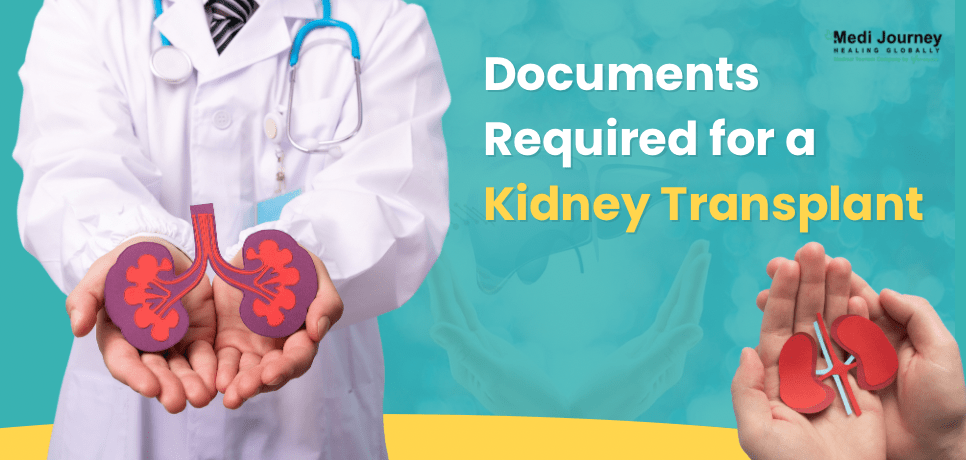
Patients undergoing a kidney transplant and their donors must submit certain documents for approval. These documents include:
For a kidney transplant between spouses, all documents for first-degree relatives must be submitted, along with marriage photographs, marriage certificates, and birth certificates of children, if any.
The donor and recipient must submit essential medical records before a kidney transplant. These include:
A kidney transplant is one of the treatments available for end-stage renal disease, chronic kidney disease, and kidney failure. It has several benefits over dialysis. Patients can receive kidneys from deceased or living donors. However, the procedure faces the challenge of donor shortage. New research is being conducted to overcome this challenge, and modern technology is being introduced worldwide. Thus, more patients with kidney disease can benefit from this life-saving treatment method.
BDS, Fellowship, MSc
Dr. Ishita Shirvalkar is a dentist, forensic odontologist, and medical writer. She has over two years of clinical experience. She completed her education at reputed institutions such as VSPM Dental College and Research Center in Nagpur.
Senior Director
Kidney Transplant Surgeon, Nephrologist
Dr. Debabrata Mukherjee is a renowned Nephrologist and Kidney Transplant Surgeon with over 34 years of extensive experience. He has conducted over 2,000 successful kidney transplants and possesses proficiency in various dialysis modalities. He specializes in cadaveric renal transplant, ABO-incompatible renal transplant, and interventional nephrology....
Senior Consultant
Medical Oncologist
Nanavati-Max Super Speciality Hospital, Mumbai
Book Appointment WhatsApp UsSenior Director
Gynecologist and Obstetrician, IVF Specialist
Max Super Speciality Hospital, Shalimar Bagh, New Delhi
Book Appointment WhatsApp UsSenior Director
Gynecologist and Obstetrician, IVF Specialist
Max Smart Super Speciality Hospital, Saket, New Delhi
Book Appointment WhatsApp UsSenior Director
Gynecologist and Obstetrician
Max Smart Super Speciality Hospital, Saket, New Delhi
Book Appointment WhatsApp UsSenior Director
Gynecologist and Obstetrician
Max Smart Super Speciality Hospital, Saket, New Delhi
Book Appointment WhatsApp UsSenior Director
Gynecologist and Obstetrician
Max Smart Super Speciality Hospital, Saket, New Delhi
Book Appointment WhatsApp UsFill up the form and get assured assitance within 24 hrs!
The Art of Effective Communication
 24 January,2025
Read More
24 January,2025
Read More
Trusted by Patients
"I am Asim from Bangladesh and was looking for treatment in India for neuro. I visited many websites to get the complete information regarding the treatment but I was not satisfied as I was getting confused. In the meanwhile, one of my friends suggested I seek help from Medi Journey as he experienced his medical journey very smoothly and was satisfied with it. They have filtered the top 10 doctors as per experience, the success rate of surgery & profile, so it helps us to choose the best treatment in India. "
"For my knee surgery, Medi Journey guided me to BLK Hospital where I received exceptional care. The team's support and the expertise at BLK Hospital exceeded my expectations. Thank you Medi Journey for making my medical journey stress-free. "
"I came from Iraq for my granddaughter's eye surgery in India facilitated by Medi Journey, due to critical cases they advised us to get a second opinion from the different hospitals before going to surgery. Finally, we went to Fortis Escort Hospital, which helped us to get more confidence for diagnosis. Fortis Escort Hospital has the best eye surgeon team with the latest instruments. Thanks to all team members for providing a high-quality treatment in India at an affordable cost. "
"I came for my hair transplant in India, before coming I was so confused about choosing the best clinic and surgeon for me. But thanks to God one of my friends had a hair transplant in India through Medi Journey. He recommended me to go with them. I am completely happy with my experience with them. They were always very fast in their responses to me. the success rate of my hair transplant surgery is 100%."
"Artemis Hospital, suggested by Medi Journey, turned out to be a great choice for my treatment. The personalized assistance and medical care were exceptional. I'm grateful to Medi Journey for guiding me to a hospital that perfectly matched my needs. Highly recommended! "
"I came from Afghanistan for my treatment in India at Jaypee Hospital, Noida. I had a fantastic experience with Medi Journey. Kudos to them for their incredible support during my medical journey. They not only took care of all the logistics but also connected me with a fantastic healthcare team. Efficient, caring, and highly recommended for a hassle-free medical tourism experience."
"I am Adam from Kano, Nigeria, one of my friends from Nigeria was facilitated by Medi Journey, and he recommended us to go with them. I sent my all reports to them and within 48 hours they reverted with 4 options from different hospitals. They helped me to get a Visa letter from the hospital, arrange pick-up from the airport, and book a hotel for me. Their team is very honest and throughout our stay in India they are with us they are caring for us like his family members. BLK Hospital is the best hospital in India with a top surgical oncologist surgeon team, a very advanced OT, and a Radiotherapy department. I wish more success to Medi Journey. "
"Great experience at the Max Hospital for my spine surgery and was successfully done. I thank my neurosurgeon and his entire team. I recommended all of my country's people to Medi Journey for treatment in India, they choose the best hospital, the best doctors, and the best cost for patients."
"I came to India from Dhaka, Bangladesh for my father-in-law's cardiac surgery at Fortis Hospital. I was confused about choosing the best surgeon for him before coming, but their team helped me to choose the best hospital and best cardiac surgeon in India with very good cost and 100% success rate of surgery. I am very happy with the services, really they make my journey so comfortable that make me feel at home. Thanks again and I like people to choose "Medi Journey" as your travel guide. "
"I am Mohammad from Bangladesh came to India for my general health checkup. Medi Journey offers me the complete package including Pick-up from the airport, hotel services, and 24-hour assistance. They guide you to choose the best hospital in India, the best cost of treatment with top-most doctors and give you complete information about hotel booking, and pick-up from the airport before coming to India They have the best team to help. Always choose Medi Journey for your treatment in India."
